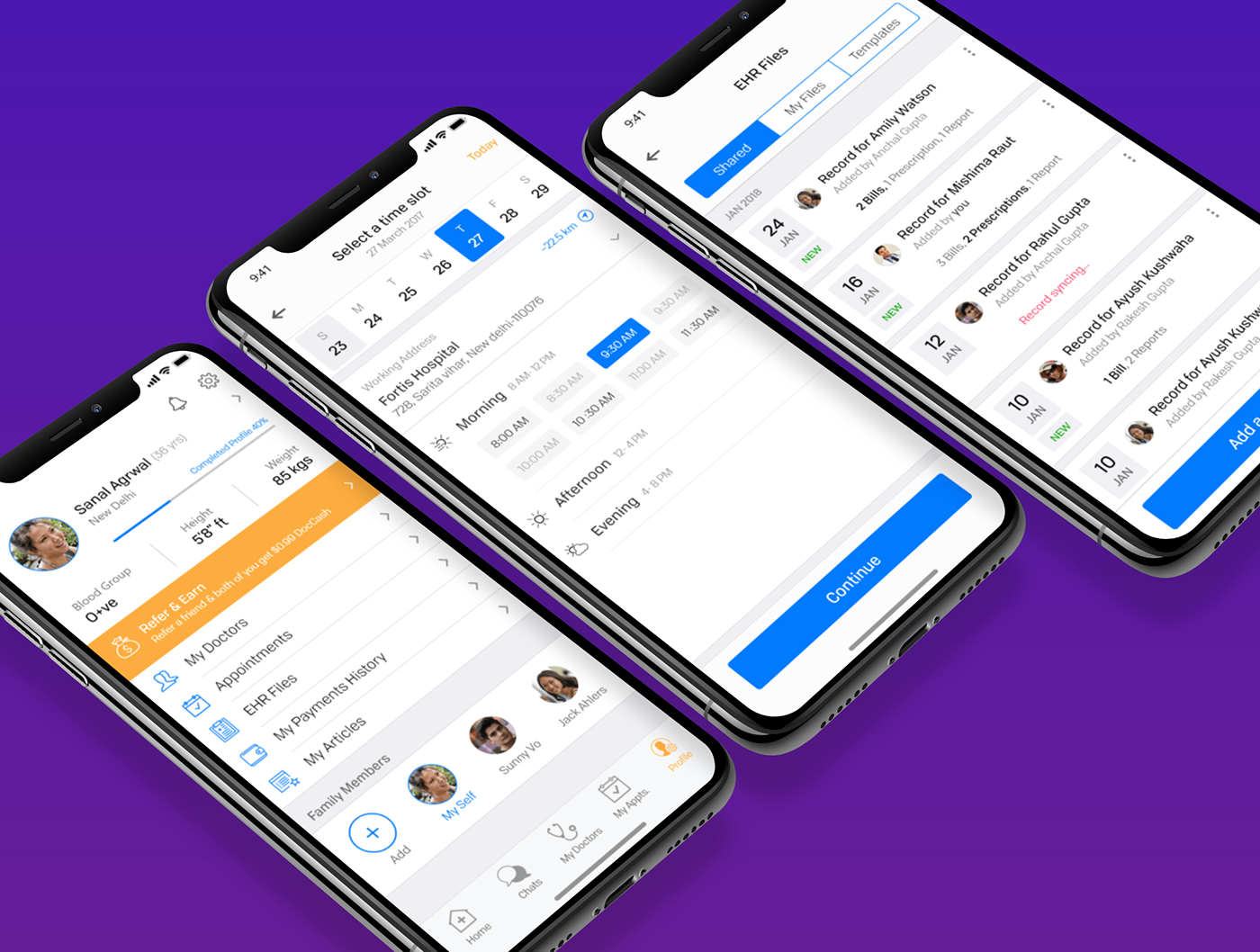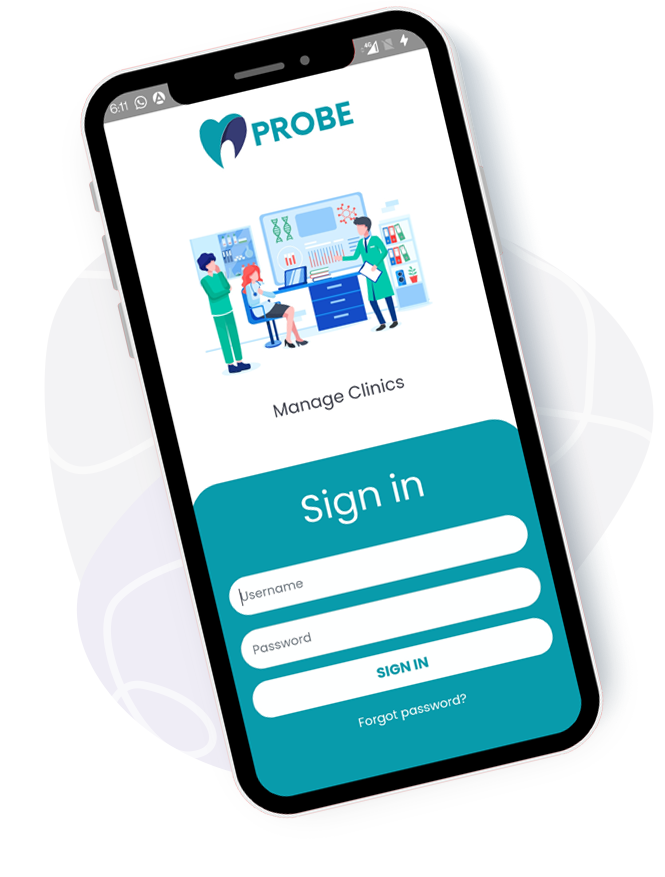The Advantages of Implementing a Mobile App for Clinics in Today's Healthcare
The Advantages of Implementing a Mobile App for Clinics in Today's Healthcare
Blog Article
The Future of Medical Care: Why Clinics Need a Mobile Application Today
As the health care landscape continues to develop, facilities encounter mounting pressure to adjust to person assumptions for greater convenience and access. The assimilation of mobile applications can offer as a crucial approach for improving person involvement and simplifying procedures.
Changing Individual Expectations
As the landscape of healthcare progresses, person expectations are undergoing a significant improvement. Today's clients are increasingly looking for benefit, access, and customized care.
Moreover, patients are ending up being extra informed and equipped, commonly researching problems and treatments on-line prior to assessments. This heightened awareness is paired with a need for openness in healthcare procedures, including price quotes and treatment choices. As a result, providers are urged to adapt by taking on digital tools that boost the individual experience.
The expectation for efficient and timely interaction has actually never ever been greater, with several clients considering responsiveness an essential component of quality care. mobile app for clinics. In this developing landscape, medical care organizations have to acknowledge these transforming assumptions and utilize mobile applications to foster a much more patient-centric strategy, making sure that they not only satisfy however exceed the criteria established by today's educated consumers
Enhancing Person Involvement

Mobile applications facilitate communication in between patients and healthcare carriers, enabling real-time appointment scheduling, tips for drug adherence, and direct messaging attributes. These capabilities not only improve comfort however additionally build a sense of accountability amongst clients. Mobile applications can use instructional web content customized to specific needs, aiding clients better recognize their conditions and treatment choices.
The combination of gamification elements within health care applications can likewise inspire patients to involve in healthy habits, strengthening favorable way of living modifications. Eventually, boosting client engagement with mobile applications leads to boosted wellness end results, greater person contentment, and a much more joint medical care experience.
Streamlining Clinic Workflow
Simplifying clinic operations is essential for improving workflow effectiveness and enhancing patient treatment. The implementation of mobile applications can considerably minimize administrative worries, enabling healthcare providers to focus a lot more on individual interactions. By automating appointment organizing, patient check-ins, and billing procedures, clinics can decrease wait times and boost overall functional effectiveness.
Mobile applications additionally help with real-time access to person documents, allowing healthcare specialists to make educated choices quickly. This immediacy not only improves the high quality of treatment however additionally decreases the probability of errors linked with lost or obsoleted details. Furthermore, leveraging mobile innovation supports a more well organized technique to taking care of person follow-ups and therapy strategies, making sure that no vital actions are overlooked.
Furthermore, mobile apps can streamline supply monitoring by supplying facilities with devices to keep an eye on medications and materials efficiently. This allows for timely replenishment and aids stay clear of interruptions in individual care because of stock scarcities. By incorporating these performances right into their everyday procedures, facilities can produce a more Check This Out natural and effective setting, ultimately bring about boosted patient results and contentment. Embracing mobile innovation is not simply a fad; it is a necessary evolution in the healthcare landscape.
Improving Communication Channels
Efficient communication is frequently pointed out as a foundation of high quality medical care distribution. In today's busy clinical atmosphere, mobile applications can significantly boost interaction networks in between facilities, patients, and health care service providers. By integrating mobile applications into their operations, centers can promote real-time communications, ensuring that patients get prompt information regarding their consultations, examination results, and therapy plans.
Mobile apps also empower individuals to connect straight with their healthcare groups with protected messaging attributes. This straight line of communication promotes a sense of interaction and allows for instant clarification of concerns, which can result in much better adherence to treatment procedures. Furthermore, press alerts can remind people of upcoming visits or medicine timetables, decreasing no-show prices and enhancing overall health results.

Remaining Affordable in Healthcare
In a swiftly advancing medical care landscape, organizations should focus on development and versatility to maintain a competitive edge. The assimilation of mobile applications into medical care solutions is no longer optional; it is essential for facilities intending to improve person interaction, streamline procedures, and boost general solution delivery.
As patients significantly rely upon electronic systems for wellness monitoring, facilities that stop working to embrace mobile innovation danger falling back. A well-designed mobile app can offer attributes such as consultation other organizing, telemedicine consultations, and access to clinical records, giving individuals with benefit and fostering commitment.

Competitors are also buying mobile options, so staying ahead calls for continual renovation and staying informed regarding technical developments. Facilities must not only apply mobile applications yet additionally participate in routine updates and refinements. Eventually, the effective combination of mobile modern technology will certainly differentiate forward-thinking healthcare companies and established the criteria for patient-centric care in an electronic globe.
Verdict
In verdict, the integration of mobile applications in facilities is vital to resolve the advancing landscape of patient expectations. Eventually, the strategic application of mobile apps represents a crucial action towards supplying individualized and accessible medical find more info care, thus satisfying the needs of today's equipped patients.
Eventually, boosting patient engagement through mobile applications leads to enhanced health and wellness outcomes, better person fulfillment, and an extra joint medical care experience.Mobile applications likewise assist in real-time access to client documents, enabling health care specialists to make enlightened decisions rapidly. In today's fast-paced medical environment, mobile applications can dramatically improve communication networks between facilities, clients, and healthcare service providers.Mobile apps additionally empower individuals to communicate straight with their healthcare groups with safe and secure messaging functions. Inevitably, the critical application of mobile applications stands for an important step toward providing customized and easily accessible medical care, thus meeting the requirements of today's equipped clients.
Report this page